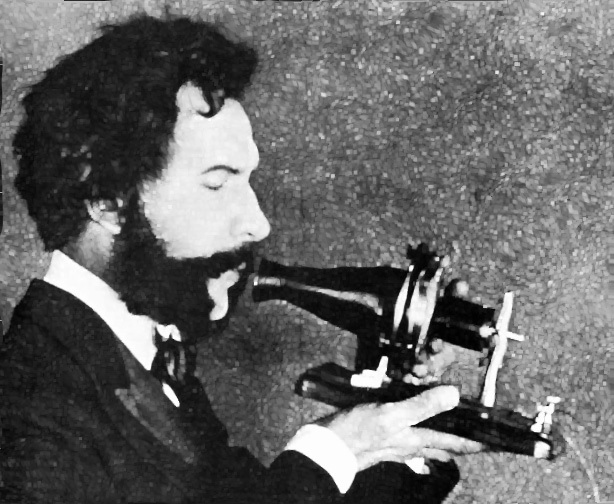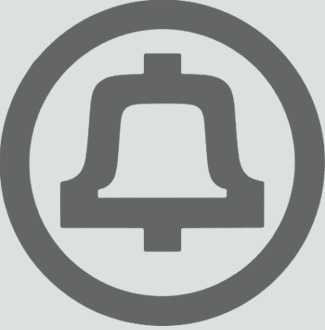Telecom Informer
by The Prophet
Hello, and greetings from the Central Office!
It's winter in Beijing, a season that comes very suddenly. Days are cold, often windy, and nights can be bitterly cold. There isn't much other than the Gobi Desert between here and Siberia. The prevailing winds change after the summer monsoon season, turning the air very dry. I need humidifiers in every room of my apartment, and grounding straps actually matter here; static electricity is a huge problem.
After a year and a half of virtually nonstop work, I finally found time for a vacation. When I go on vacation, I tend to visit places that are interesting from a telecommunications perspective (and more importantly, places where my mobile phone is unlikely to roam and disturb me with a work emergency). A few years ago, it was Suriname, and not long before that, Adak. This time, it was Palau, the most gorgeous place you've probably never heard of. A former U.S. territory with a population of only 20,000 and with a virtually untouched ecology, it's a series of small islands sandwiched between Guam and the Philippines. Tourism drives the economy, such as it is, but it's specialized; fewer than 100,000 visitors typically come per year, amounting to roughly five visitors per resident. Most of them show up for diving tours, shuttled from airport to hotel to boat to some of the best diving in the world. Most of Palau is so remote and undeveloped that multiple seasons of Survivor have been filmed there.
For a place so far off the beaten path, you might wonder whether there are phones at all. Yes, there are, courtesy of Palau National Communications Corporation (PNCC). My idea of a vacation is being somewhere that The Phone Company still exists, and Palau delivers! PNCC has real offices where you can actually go in person to talk to someone about establishing service, ask a question about your bill, or pick up a phone book (these are still published by PNCC, not a third-party directory company, and contain very detailed information). When you dial 0, it's a person answering "operator" rather than a robot. There are well-maintained public phones located throughout the islands. And if you show up at the central office, you might just find a friendly engineer administering possibly the most remote 5ESS in the world.
Left behind by the former U.S. territorial administration, the switch has been out of warranty and off maintenance for several years now, but it still works, and is diligently maintained by the local staff with spares bought online. Replacing it would be a massive investment, because most customers are served by Remote Switching Units (RSUs). There is one per village, and each frame is at the RSU site. One exchange is typically assigned per RSU, and Subscriber Loop Carriers (SLCs) are extensively used (most often SLC-5 or SLC-96, with some SLC-2000). Growth is low, since most of the growth is in mobile, and abandoned numbers are reclaimed, so it's unlikely that changes to the numbering plan will be required anytime soon. There is a domestic submarine fiber ring, built circa 1994, connecting most of the RSUs to the 5ESS central office. The rest are served by digital microwave, which brings dial tone to the most remote northern and southern islands of Palau. Although it's over 100 miles from the northernmost to southernmost point of Palau, there is no such thing as a long distance call. The entire country is a local call, and domestic calls are unmetered.
For now, there is currently no way for any network traffic to get out of Palau other than via satellite, making Palau one of the last places in the world where C5 signaling is actively used. A fiber optic network is currently under construction, rerouting an old cable that used to run between Guam and Manila to Palau. This is expected to come online at the end of 2012, and should dramatically lower telecommunications costs while greatly increasing Internet bandwidth. Meanwhile, PNCC leases satellite capacity from Tata (a.k.a. Intelsat) and Telefonica (a.k.a. Inmarsat).
Many calls originating in Palau are sent via VoIP routes, terminating via either Verizon or Tata. VoIP is a one-way proposition where Palau is involved, though; calls into Palau appear to all be circuit switched. Circuit switched calls terminate via KDDI, AT&T, and Sprint. PNCC, unusually, endeavors to balance both quality and cost. Most carriers long ago gave up on considering anything other than cost as an equation. However, PNCC's customers expect a high level of service and there is no competitive pressure forcing them to lower the service standard.
Although PNCC offers cable TV service, they have adopted ADSL rather than DOCSIS for broadband. They recently rolled it out throughout the Koror area, and have also deployed Wi-Fi hotspots (backed by either ADSL connections or T1s, depending on the location) in about 60 locations throughout the country. Dial-up Internet service is still the mainstay in Palau. It's $99.99 per month for unlimited access, and can also be used at PNCC Wi-Fi hotspots. ADSL is very expensive, starting at $199 per month for a 64 kbps circuit and ranging to $759.95 for a 320 kbps circuit, so it really only makes sense for businesses. Monthly subscribers to dial-up or ADSL services get a free email account. Palau uses the U.S. dollar, and the minimum wage is $2.50 per hour, so Internet service is a considerable household expense.
There is also a PNCC-operated nationwide GSM network with good coverage throughout populated areas of the country. While Palau was a U.S. territory, it followed FCC frequency assignments and an AMPS network was in operation. However, AMPS was decommissioned circa 2000 and the network was replaced with a GSM network operating on the 900 Mhz bands standard in Europe and throughout most of Asia. The network is built on Altobridge technology, a GSM equipment vendor specializing in low-cost equipment for developing countries. Some of PNCC's sites are solar powered, a very useful innovation considering the far-flung nature of its GSM network.
The GSM network has only voice and text services. Plans are underway to roll out EDGE sometime in the future, but no launch date has been set. Packet data hasn't been a high priority for PNCC because there is very little demand. Voice calls cost 22 cents per minute during peak hours, and 15 cents per minute off-peak. Long distance calls cost an additional 35 cents per minute, so a call to the U.S. during any reasonable hours for dialing North America costs 57 cents per minute. Calls are charged both inbound and outbound. International outbound text messages cost 20 cents each, although text messages are free to receive. Reliability is very good because these are delivered via Sybase 365, an SMS aggregator. PNCC supports limited international roaming with a few select carriers via Syniverse, fully covering the primary inbound tourism markets of Japan, Taiwan, and Guam.
In a rare example of telecommunications competition in Palau, there is also a very small GSM network operated by Palau Mobile. However, it is not interconnected with PNCC (meaning that calls to and from PNCC customers must be routed in unconventional and expensive ways). This network primarily serves international roamers because the product is simply not competitive otherwise; local rates are effectively higher than PNCC.
Many visitors to Palau choose to use prepaid phone cards to make long distance calls, since mobile phones are so expensive to use. Local SIM cards are available for visitors, but they cost $25 (a $10 connection fee, and a $15 prepaid service credit). PNCC has public phones in many convenient locations. These are called "Debusch" and appear to operate on an Asterisk-based prepaid calling platform. There are dedicated telephones located at convenient locations throughout the country that immediately connect to the prepaid calling platform - just pick up the phone and you're connected.
And with that, it's time to leave the Rainbow's End (as the tourist authority calls Palau) and return to the brutal winter of Beijing. Stay warm, stay safe, and never stop exploring!

